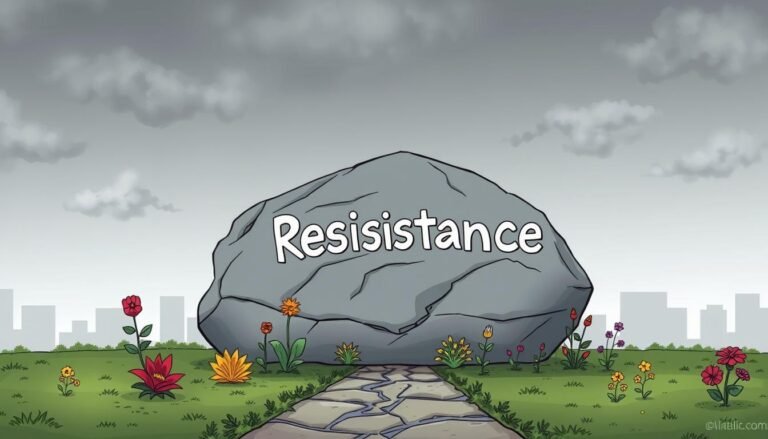Cultural Intelligence Psychology
Cultural Intelligence Psychology is key in our global world. It helps us work well with people from different backgrounds. This skill is essential for success in diverse settings.
Cross-cultural competence is at the heart of this concept. It’s about understanding and adapting to various cultural norms. This ability aids in smooth intercultural communication.
Cultural awareness plays a big role in CQ. It helps us spot and bridge gaps between cultures. This awareness leads to better teamwork and less conflict in mixed groups.
CQ isn’t just for business. It’s useful in schools, healthcare, and daily life. As our world gets more connected, these skills become more important.
Key Takeaways
- CQ involves cognitive, emotional, and physical aspects
- It helps in leading diverse teams and adapting communication
- CQ is linked to job satisfaction and performance
- High CQ often means high emotional intelligence
- CQ can be improved through training
- It’s crucial for success in global business
- CQ enhances team dynamics and innovation
The Evolution of Cultural Intelligence in Modern Psychology
Cultural intelligence is now key in modern psychology. It helps us understand how people deal with different environments. The field has grown, focusing on cultural sensitivity and diversity intelligence.
Historical Development and Research
Early studies looked at how we learn from others. They found that learning from skilled people is faster. This is true for many species, showing social learning is universal.
Soon Ang’s Pioneering Work
Soon Ang changed how we see cultural adaptability. She studied what makes people and groups good at working across cultures. Ang showed us how different values are and how we can learn from them.
Contemporary Applications
Now, cultural intelligence goes beyond just international work. It also deals with diversity and division in our own societies. Training programs focus on building cross-cultural skills. They aim to improve adaptability and understanding in many areas.
- Cultural intelligence improves workplace diversity
- It aids in international negotiations
- CQ skills help bridge cultural gaps
As our world gets more connected, cultural intelligence becomes even more vital. It gives people the skills to succeed in diverse places. This leads to better understanding and working together across cultures.
Cultural Intelligence Psychology: Core Principles and Foundations
Cultural intelligence (CQ) is key to understanding different cultures in our global world. It’s more than just knowing about various cultures. It’s about learning how to think and act globally.
CQ has four main parts: cognitive, metacognitive, motivational, and behavioral. These parts help us better understand and move through different cultural settings.
The cognitive part is about knowing cultural norms and practices. Metacognitive CQ is about being aware of our own cultural biases. Motivational CQ is about wanting to learn about different cultures. Lastly, behavioral CQ is about being able to act in different cultural ways.
Being humble is important in learning cultural intelligence. Just experiencing different cultures isn’t enough. We need to think deeply, form theories, and practice new behaviors.
| CQ Component | Description | Impact |
|---|---|---|
| Cognitive | Knowledge of cultural norms | Improved understanding of diverse practices |
| Metacognitive | Awareness of personal biases | Enhanced self-reflection and adaptation |
| Motivational | Interest in cultural engagement | Increased willingness to interact cross-culturally |
| Behavioral | Ability to adapt actions | Successful navigation of diverse social contexts |
Studies show that people with high CQ do well in global business and international roles. They work better in teams, are more creative, and solve conflicts well in different cultures.
“Understanding the frame of meaning in different cultures is crucial for effective cross-cultural communication in business and relationships.”
We can grow our CQ through learning, experiences, and practice in diverse places. This continuous effort builds a strong global mindset. It’s vital for success in our connected world.
Components of Cultural Intelligence
Cultural Intelligence Psychology identifies four key parts that shape how well we handle different cultures. These parts help us communicate better and work well in various settings.
Motivational CQ
This part makes us want to explore different cultures. It’s about being interested, getting rewards, and feeling confident in new places. People with high motivational CQ love to learn and adapt.
Cognitive CQ
Cognitive CQ is about knowing different cultures. It’s understanding their norms, values, and ways of life. This knowledge is key to moving smoothly through different cultural scenes.
Metacognitive CQ
This part is about being aware and strategic in cultural interactions. It’s about planning, being mindful, and thinking about our experiences. Metacognitive CQ lets us adjust our approach as needed.
Behavioral CQ
Behavioral CQ is about acting right in different cultures. It’s about how we communicate and adjust our behavior to fit in. This skill is crucial for fitting in.
These parts work together to boost our cultural intelligence. Studies show that high CQ leads to better adjustment, negotiation, and leadership globally. Teams with high CQ are more innovative and solve problems better.
| CQ Component | Key Elements | Impact on Performance |
|---|---|---|
| Motivational CQ | Intrinsic Interest, Extrinsic Rewards, Self-efficacy | Drives engagement in cross-cultural experiences |
| Cognitive CQ | Cultural Knowledge, Norms, Values | Enhances understanding of diverse cultural contexts |
| Metacognitive CQ | Planning, Awareness, Reflection | Improves adaptability in real-time interactions |
| Behavioral CQ | Verbal, Non-verbal, Contextual Adaptation | Facilitates appropriate actions in diverse settings |
By working on these parts, we can greatly improve our cultural intelligence. This leads to better communication and performance globally.
Understanding Cultural Intelligence Measurement
Cultural intelligence measurement is key to understanding cultural awareness and sensitivity. Researchers use different methods to see how well someone can handle various cultural settings.
Maximum-Performance Assessment
The Sternberg Test of Cultural Intelligence (SCIT) is a major tool for measuring cultural intelligence. A study with 114 undergraduates showed the SCIT’s high reliability. It has two parts: Business (SCIT-B) and Leisure (SCIT-L), which are closely related.
Typical-Performance Assessment
Typical-performance tests also measure cultural competence in everyday life. They look at openness to experience and diversity intelligence. Even though they might have biases, they give useful insights into cultural adaptability.
Reliability and Validity Measures
The reliability of cultural intelligence tests is very important. The SCIT-B and SCIT-L subscales have high internal consistencies of .79 and .77, respectively. Researchers aim for even higher values to ensure accurate measurements.
| Test Component | Internal Consistency | Target Reliability |
|---|---|---|
| SCIT-B | 0.79 | Above 0.80 |
| SCIT-L | 0.77 | Above 0.80 |
| Total Test | Not specified | Above 0.90 |
These tools help organizations and individuals understand their cultural intelligence. They improve cross-cultural interactions and global leadership skills.
The Role of Cultural Intelligence in Global Leadership
Today’s global leaders face big challenges. A study of 126 Swiss military officers showed that cultural intelligence (CQ) is key for leading across borders. This highlights how important it is for leaders to adapt to different cultures.
CQ has four parts: metacognitive, cognitive, motivational, and behavioral. These help leaders move smoothly through different cultural settings. A leader with high CQ can focus well on learning and working in diverse places.
In 2023, a study looked into how to improve CQ in leaders. It said we need to understand cultural influences and turn that knowledge into action. Coaching and hands-on learning were suggested to boost CQ in mid-level leaders.
A study in South Africa found a link between leader CQ and empowering leadership. Leaders with strong metacognitive and motivational CQ empower their teams. This creates a global mindset in the whole organization.
| CQ Component | Impact on Leadership |
|---|---|
| Metacognitive CQ | Enhances conscious cultural awareness |
| Cognitive CQ | Improves knowledge of cultural norms |
| Motivational CQ | Drives engagement in diverse settings |
| Behavioral CQ | Enables appropriate cross-cultural actions |
Building cultural intelligence is key for global leaders. It helps them understand and work with different cultures. As companies grow globally, having CQ in leaders will be more important than ever.
Developing Cross-Cultural Competence Through CQ
Cultural Intelligence Psychology gives us powerful tools for becoming better at working across cultures. It has been studied in over 98 countries for nearly 20 years. This research helps us understand how to improve our skills in talking and working with people from different cultures.
Training Methods and Approaches
The Cultural Intelligence Scale (CQS) is at the heart of many training programs. It has been tested with groups like executives, expats, and teams from different cultures. The Expanded Cultural Intelligence Scale (E-CQS) goes even deeper, giving feedback on 13 parts of cultural intelligence.
Experiential Learning Techniques
Learning to work across cultures often means getting hands-on experience. Short trips and study abroad programs can really help. These experiences let you interact with locals in real ways, which is key for growing your understanding of different cultures.
Situational Judgment Tests
Situational judgment tests are important in training for cultural intelligence. They use video clips of cultural scenarios to improve your ability to see things from other perspectives. These tests help you learn how to handle cultural challenges in real life, making you better at working in diverse settings.
| Training Method | Key Benefit | Application |
|---|---|---|
| Cultural Intelligence Scale | Comprehensive Assessment | Baseline Measurement |
| Immersive Experiences | Real-world Learning | Study Abroad Programs |
| Situational Judgment Tests | Practical Skill Development | Corporate Training |
By using these methods together, people can become very skilled at working across cultures. This is crucial in our global world. The aim is to improve all parts of cultural intelligence, making professionals who can adapt and understand different cultures well.
Cultural Intelligence and Innovation in Diverse Teams
Cultural intelligence is key to innovation in diverse teams. Studies show teams with cultural awareness and diversity intelligence come up with more ideas. They use different views to create new solutions.
Team Dynamics
Diverse teams with cultural adaptability work well together. A study found 42% of companies don’t focus on hiring diverse teams, missing out on benefits. Teams with people from different countries are most innovative.
Innovation Catalysts
Cultural intelligence boosts innovation. Companies with diverse management teams see a 20% rise in innovation. Gender-diverse teams also do better in science and tech, showing the power of inclusivity.
Performance Metrics
It’s important to measure cultural intelligence’s effect on team success. The Boston Consulting Group found a link between diversity and innovation. Geert Hofstede’s work on cultural dimensions gives insights into team performance:
- Power Distance Index
- Individualism vs Collectivism
- Uncertainty Avoidance
- Masculinity vs Femininity
- Long-term vs Short-term Orientation
- Indulgence vs Restraint
Knowing these dimensions helps teams use their cultural differences to innovate and succeed globally.
Bridging Cultural Gaps with CQ Skills
Cultural Intelligence (CQ) skills are key to understanding different cultures and thinking globally. They help us connect with people from various backgrounds, not just abroad. By using CQ skills at home, we can break down barriers and find common ground with others.
Studies show that CQ skills improve teamwork by sharing knowledge. This shows how important CQ is for a place where everyone’s ideas can grow. With these skills, we can better navigate cultural differences and work together more inclusively.
Cultural humility is a big part of CQ. It lets us approach cultural differences with respect and openness. Research finds that CQ helps global workers adjust better, showing how crucial it is to stay humble when meeting new cultures.
“Cultural Intelligence is not just about understanding others; it’s about understanding ourselves and how we interact with the world around us.”
To develop CQ skills, you can:
- Practice active listening
- Seek out different viewpoints
- Build empathy
- Challenge your own biases
- Keep learning
By improving these skills, we can close cultural gaps and build a more welcoming society.
Cultural Intelligence in Business Settings
Cultural Intelligence Psychology is key in today’s global business world. Companies with culturally smart staff do better in our connected world. This skill helps with communication, teamwork, and success in different cultures.
Corporate Applications
In business, Cultural Intelligence (CQ) connects diverse teams and customers. It helps companies succeed in markets around the world. CQ leads to better decision-making, innovation, and profits.
International Negotiations
Cross-cultural skills are vital for talks across borders. Smart negotiators understand and deal with cultural differences well. This skill builds trust, improves talks, and solves problems in global settings.
Workplace Diversity
CQ is key for managing diversity and inclusion at work. It helps leaders handle power and bias. With cultural intelligence, companies attract and keep diverse talent, saving costs and boosting teamwork.
Source Links
- Cultural Intelligence: What is it and Why is it Important?
- Cultural Intelligence | Quality Improvement Center for Workforce Development
- Cultural Intelligence (Chapter 34) – The Cambridge Handbook of Intelligence
- Social learning and evolution: the cultural intelligence hypothesis
- Cultural Intelligence: Origins, Conceptualization, Evolution, and Methodological Diversity
- Cultural Intelligence – (Social Psychology) – Vocab, Definition, Explanations | Fiveable
- Cultural Intelligence: What Do You Really Mean?
- The What, How and Why of Cultural Intelligence
- Cultural Intelligence: Definition, Importance, and Tips
- Cultural Intelligence: What Is It and How Can It Effectively Be Measured?
- Understanding and Assessing Cultural Intelligence: Maximum-Performance and Typical-Performance Approaches
- Introduction
- Beyond General Intelligence (IQ) and Emotional Intelligence (EQ): The Role of Cultural Intelligence (CQ) on CrossBorder Leadership Effectiveness in a Globalized World
- Enhancing Cultural Intelligence in Global Leaders Through Global Leadership Development Programs: An Exploratory Case Study
- Leadership styles: The role of cultural intelligence | Solomon
- Cultural Competency & Cultural Intelligence Training
- Increase Your Cultural Intelligence With These Three Strategies | Cornerstone University
- Frontiers | Enhancing cross-cultural well-being: a mixed methods study on critical thinking, cultural intelligence, and eudaimonic well-being in arts students’ cultural identity development
- Cultural diversity drives innovation: empowering teams for success
- How Is Cultural Intelligence Related to Human Behavior?
- Articles | Cultural Intelligence Center
- Cognitive Cultural Intelligence: Research, Frameworks, and Key Cultural Dimensions
- About Cultural Intelligence | Cultural Intelligence Center
- What is Cultural Intelligence?
- What Is Cultural Intelligence? Why Is It Important?








